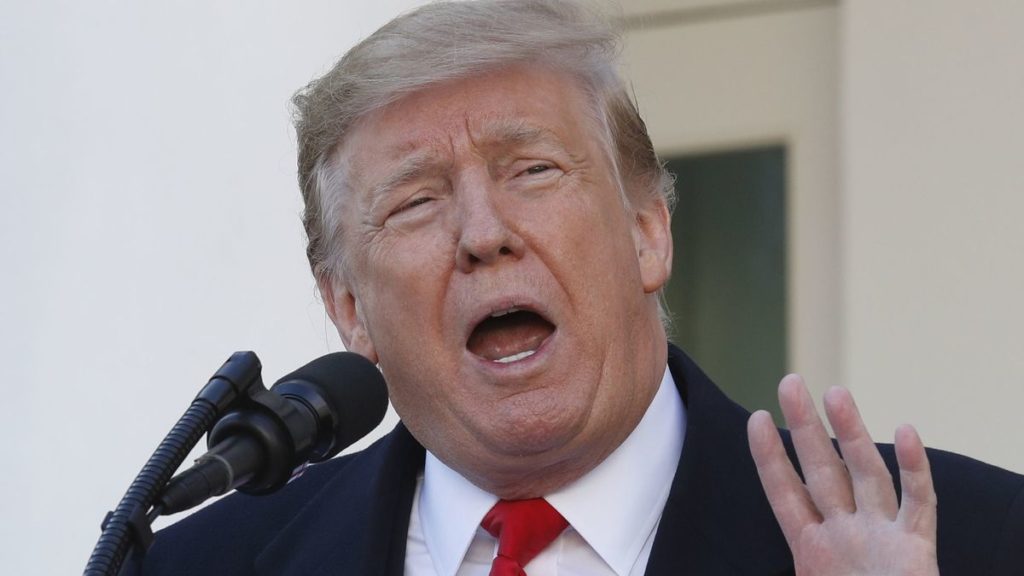
Deal comes after two bills to end longest government shutdown failed in U.S. Senate
As the government shutdown continued on to its 35th day on Friday, January 25 — the longest it has ever been in U.S. history — President Donald Trump announced that he would agree to a short-term deal to temporarily reopen the government.
The deal would reopen the government for three weeks until February 15, allowing lawmakers to continue negotiations on border security and Trump’s demands for a wall along the Southern border.
“I am very proud to announce today that we have reached a deal to end the shutdown and reopen the federal government,” said Trump.
It would also allow the 800,000 furloughed federal workers to receive missed payments for the past five weeks of the partial government shutdown.
“As everyone knows, I have a very powerful alternative but didn’t want to use it at this time,” he added, likely referring to his authority to declare a national emergency.
While the deal does not include any promises for border wall funding, which Democrats have refused to negotiate until the government reopened, Trump made clear that he was not backing down on his border wall demands nor his authority to declare a national emergency.
“Let me be very clear. We really have no choice but to build a powerful wall or steel barrier,” said Trump on Friday. “If we don’t get a fair deal from Congress, the government will either shut down on February 15 again or I will use the powers afforded to me under the laws and the Constitution of the United States to address this emergency.”
On building the new wall, Trump downplayed previous considerations for a concrete wall and said that “2,000 miles of concrete wall from sea to shining sea” was not needed.
“We never did, we never proposed that, we never wanted that because we have barriers at the border where our natural structures are as good as anything we can build. They’re already there. They’ve been there for millions of years,” said the president.
Trump also thanked the federal workers who he said had “shown such extraordinary devotion in the face of this recent hardship.”
Among the federal workers heavily affected by the shutdown were airport employees and agents of the Transportation Security Administration (TSA) and the Federal Aviation Authority (FAA). Just hours before Trump’s announcement, flights coming into New York City’s LaGuardia Airport were put on hold and departures delayed as the FAA cited staffing issues resulting from the shutdown as being the reason.
Staffing problems at the Jacksonville and Washington Air Route Traffic Control Centers also caused delays in New Jersey and Philadelphia airports.
In Los Angeles, Mayor Eric Garcetti said that while the plan to reopen the government was good news for those who needed to get back to work, a “fully-functioning federal government” is what was really needed.
“Americans need more than a band-aid,” he said, referring to the reopening plan.
Garcetti added, “If the president brings us back to this point again, we have plans in place to support our hardworking TSA employees so that they can stay on the job without worrying about how to put food on the table.”
The announcement on ending the shutdown came a day after U.S senators met to vote on a pair of bills to reopen the government, but neither bills — one that included wall funding and one that did not — were able to garner enough votes.
First voted on was a Republican bill which included President Donald Trump’s proposal requesting $5.7 billion for the border wall, along with funding for 2,000 additional Immigration and Customs Enforcement agents, 750 addition Border Patrol agents, and 375 additional Customs and Border Protection officers.
The second vote was for a Democratic bill which called for the reopening of the government at last year’s funding levels to allow Congress to further negotiate border security issues. It also provided $14 billion in unrelated disaster-relief funding for wildfires, hurricanes, and other disaster events.
Both bills needed 60 votes to pass, but fell short during the back-to-back voting with the Republican bill getting 50-47, and the Democratic bill getting 52-44. (Rae Ann Varona/AJPress)






